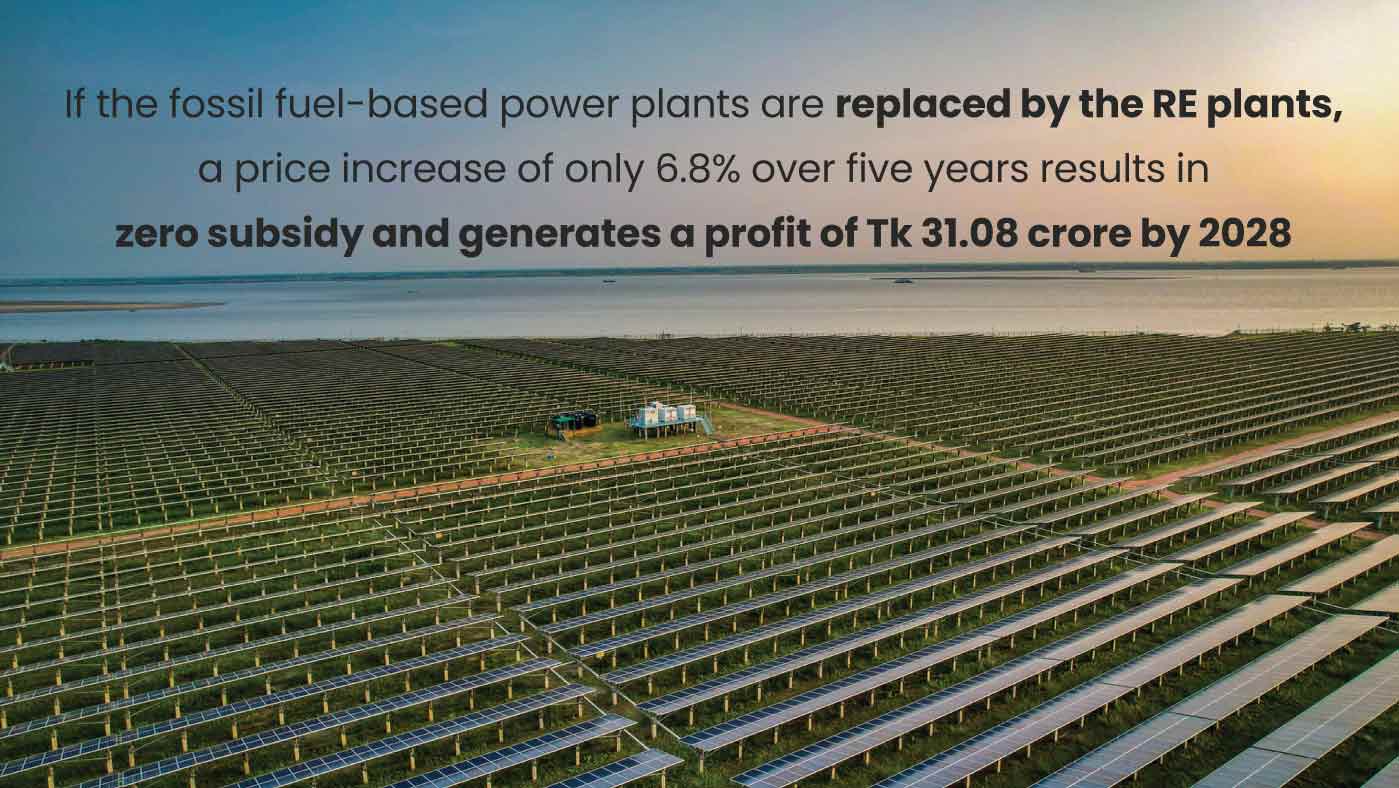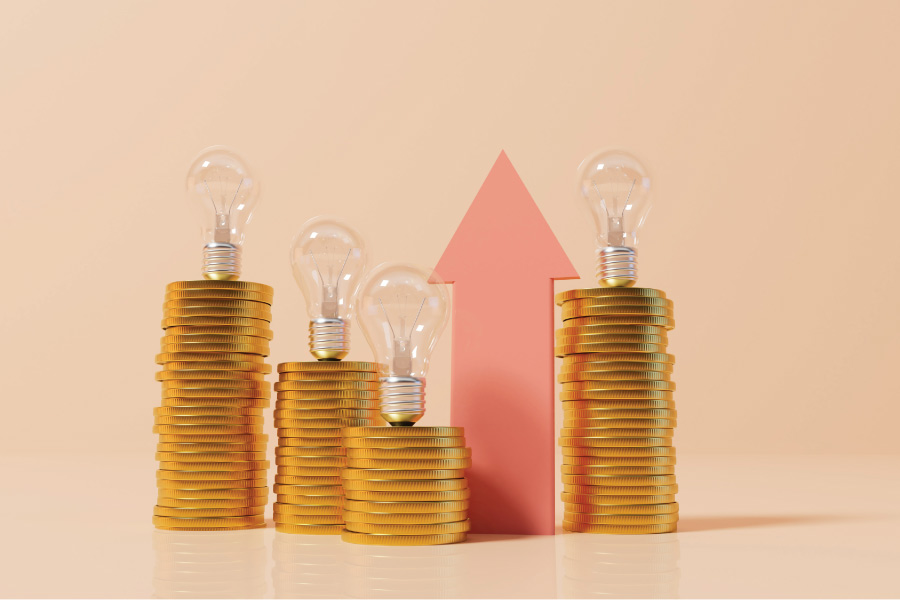High inflation sustained for about two years; investors urged to promote renewable energy
Emran Hossain
More miseries because of soaring energy prices
In the first two weeks of March, three Santal people, all in their 50s, dropped dead in a rural area in northern Bangladesh’s Gaibandha district – Gobindaganj. The deaths happened in rather dramatic ways, leaving in the mind of the ethnic minority people the thought that the deaths had something to do with mental pressure and stress caused by the ever-increasing living cost.
‘I am completely aware of how much pressure these people were under. They could not carry it anymore,’ said Philemon Baske
Soaring energy prices bring ordinary Bangladeshis even more miseries. Inflation sustained for about two years; investors urged to promote renewable energy Shahebganj-Bagdafarm Bhumi Uddhar Committee, a platform advocating for the land rights of the Santals.
A crippling economic crisis
Bangladesh has been in a crippling economic crisis for over two years now. Inflation has been around since 2018, turning worse from bad by frequent energy price hikes, particularly as a result of the Covid-19 pandemic and the Russian invasion of Ukraine.
It has been more than a year since the poor as revealed by independent studies started shedding protein from their diet and taking their children out of school. The power price went up three times while the gas price once in the last year.
Yet, the power and gas prices went up once again in the last week of February with the news of more hikes coming over the next months. Many people found the prospect of the living cost further rising too much to bear.
The past few years have been rather grim for back-to-back disasters that affected people’s lives and livelihoods severely. Many people could not recover the jobs they lost during the Covid-19 pandemic. But prices went up over and over, always excessively, particularly due to a poorly regulated market where traders tend to manipulate prices in every crisis.
From medicine to staple rice every essential and non-essential item have become costlier than ever before. The ongoing economic crisis is already ranked the worst in decades.
Economists and energy experts said that the crisis was partly the result of the wrong power and energy policy draining the country’s foreign reserve through fossil fuels imports and the payment of capacity charges.

The IEPMP and the burden
The Integrated Energy and Power Master Plan (IEPMP) recently adopted by the government outlines a future in which energy will never be affordable, the experts warned, saying that the power and energy sector burden will continue to grow.
The government, however, justified increasing energy prices saying that it wants to stop paying subsidies in the power and energy sector. Though there were alternatives like gradually increasing renewable energy use to come out of expensive fossil fuels, the government rather found it reasonable to keep increasing energy prices while raising fossil fuel reliance even more.
Bangladesh’s current installed power generation capacity is 26,844MW half of which remains idle. Another 11,480MW based on fossil fuel will be added by 2027, potentially inflating the living cost even more.
The impact of burden on rural community
‘I would say a silent famine is already taking place in rural Bangladesh,’ said Philemon as he explained how life looked like in one of the most underprivileged places of the country.
Philemon could not shake off the memory of the death of his neighbor, Kerina Hansda, 52, on March 9. The woman had diabetes and hypertension. In her last days, she appeared lost in thoughts as her debt mounted. The day she died she spent it sitting in her yard for a long time. She passed away in the afternoon, within minutes of complaining of not feeling well and even before she could go inside her home from the yard.
Kerina was dead by the time Philemon, who is also a village doctor, reached his neighbor with help.
Hours before Kerina, Lasarus Tudu, 55, passed away while driving his motorcycle with his son sitting in the pillion. Lasarus was supposed to see his son off at the local bus station. His son was going to his boarding school in Dinajpur.
Lasarus dropped dead from the running motorcycle. His son luckily escaped with minor injuries.
Six days earlier on March 3, Peter Murmu, 55, passed away after coming back home after a very busy day of work at the crop field. He had asked for a glass of water but could not wait to drink it. Peter dropped dead right away.
The Santals are largely farmers. They very well represent the conditions in which many Bangladesh’s farmers live. Farmers are reducing cultivation because of excessive production costs, low returns and increasing production losses because of climate change impacts.
For instance, the price of a sack of urea fertilizer, generally weighing 50 kgs, stood at Tk 1,300 in March, up from Tk 950 compared with the same month last year. The price of Triple superphosphate (TSP), on the other hand, stood at Tk 1,900 in March, up from last year’s price of Tk 1,350. The cost of farm labor and transportation also significantly increased.
Latest price hike and the largest financial impact on farmers
With the latest power price hike that came on February 27, the electricity price has increased four times since January last year. The gas price has increased three times since June 2022, including the time when gas price went up by 179 per cent in one go. The fuel oil price was also increased by up to 50 per cent in August 2022.
In official account, the average inflation rose abnormally in the second half of 2022. The inflation had stayed around 6 per cent between 2011 and the first half of 2022. Since the gas price was hiked in June 2022, the average inflation jumped to 9.52 per cent in August 2022. The inflation was recorded to be 9.84 in January this year.
The inflation has not gone below 9 per cent since 2022. And now with power price increased by 8.5 per cent and gas prices by 5 per cent in the latest hikes, inflation is set to further go up.
The CPD said that the agriculture sector was to face the largest financial impact from the latest price hike, implying that agriculture products will get even costlier.
The power tariff paid by a lifeline consumer, using 50 units or less electricity in a month, increased by 17.5 per cent since January last year. The lifeline consumers are the poorest segment of people. The richest household consumers saw their electricity tariff go up by 21.5 per cent over the same period.
The cost of using electricity rose by a fifth for irrigation, short and medium entrepreneurs, the commercial sector and the education sector since January last year.
Millions are already impacted
Consistent rise in power tariffs in the commercial sector impacted millions, especially in cities, for they relied on restaurants for meals. Long queues of hungry people at places feeding destitute people in Dhaka bore testimony to the predicament high prices caused for the city’s poor.
Many restaurants reportedly served stale foods more than before to reduce expenses and increase income, prompting public health concerns.
The CPD assumed the latest spell of power price hikes will increase household expenditure by 9.4 per cent compared with expenses in November last year. Households might need to spend an additional Tk 118 every month for electricity.
Small and medium businesses might see their power expenses go up by 9.12 per cent, followed by a 9.71-per cent increase experienced by businesses and offices, a 10-per cent increase experienced by industry and an 11-per cent increase experienced by irrigation.
The CPD predicted that prices of electricity-intensive goods such as metals and fabricated metals, minerals, fertilisers and chemicals, furniture, glass, paper and pulp and cement might go up.
The CPD said that the government’s justification for consistently increasing energy prices for reducing subsidies in the power and energy sector is rather misleading.
The CPD accused the government of passing the burden of its failure and wrong energy and power policy onto the people.
Emphasizing fossil fuel-based power generation
Instead of revising its flawed policies and wrong projection of power demand that led to huge overcapacity over the years, the government aggressively pursued fossil fuel-based power sector expansion, sending the cost of power production through the roof, the CPD said.
The average power generation cost of electricity increased by 92 per cent over the four years between 2020 and 2023, rising from Tk 5.91 a unit to Tk 11.33 a unit. The cost is likely to increase at the same, potentially increasing the capacity charge burden.
The quick power supply act worsened the situation as it allowed the government to take power projects without competitive bidding while offering lucrative returns for investors in power generation through the realisation of capacity charge.
The CPD argued that the subsidy the government paid in the power and energy sector would not have been needed had the government heeded experts’ advice of expanding renewable. Only about 3 per cent of the current installed capacity is based on renewable energy.
The CPD pointed out that the need for paying subsidies could not be ended with increasing energy prices.
Despite increasing electricity prices thrice between January and March past year, the Power Development Board reported a loss of Tk 435.39 billion in 2023, necessitating a subsidy of Tk 395.34 billion. In 2023, the PDB incurred a loss of Tk 11,765 crore against the targeted loss of Tk 6,958 crore. Compared with that in 2022, the comprehensive loss has increased by more than 3.5 times.
Zero-subsidy plan and its impacts on consumer
The government is getting a $4.7 billion loan from the International Monetary Fund under an obligation to increase energy prices. The IMF’s price estimation to reach a zero-subsidy scenario will result in a 12-per cent price hike for consumers over five years, according to the CPD.
The new tariff will reduce subsidy payment obligation by Tk 3,000 crore.
The electricity generation cost has doubled due to expensive imported LNG, the CPD said, adding that furnace oil and coal also contributed to increasing the generation cost.
Bangladesh has invested more than Tk 1.66 lakh crore between 2018 and 2022 for LNG import and building necessary infrastructure. Last year, the cost of getting a cubic meter of gas was over Tk 79 but the government had to sell it at Tk 14.
‘The priority should be adjusting power overcapacity and reducing reliance on imported fossil fuel,’ said CPD research director Khondaker Golam Moazzem.
The CPD said that the subsidy burden could have been reduced by phasing out fossil fuel-based power plants in time, canceling capacity charge entitlement, increasing power prices on a smaller scale and replacing phased-out power plants with renewable ones in line to achieve 40 per cent renewable energy in 2041.
The CPD proposed a way of keeping the power price hike to 6.8 per cent over five years to reach a zero-subsidy scenario.
A tiny space for renewable energy
Ensuring 19.5 per cent renewable energy in the energy mix in 2025 could save Tk 8,670 crore while ensuring 34.4 per cent renewable energy in 2041 could save Tk 63,000 crore, the CPD said.
If the fossil fuel-based power plants are replaced by the RE plants, a price increase of only 6.8 per cent over five years results in zero subsidy and generates a profit of Tk 31.08 crore by 2028, the CPD estimated.
However Bangladesh does not look very committed and determined in treading the path of generating low-cost electricity. In the IEPMP, Bangladesh even plans to introduce hydrogen energy, ammonia-co-firing and carbon capture technology, which experts described as unproven technologies and would be far too expensive even if they are proven viable for power production.
The CPD said that the problem with relying too much on fossil fuel is it limits renewable energy potential and called on investors to invest in a sustainable future – promoting renewable energy.




